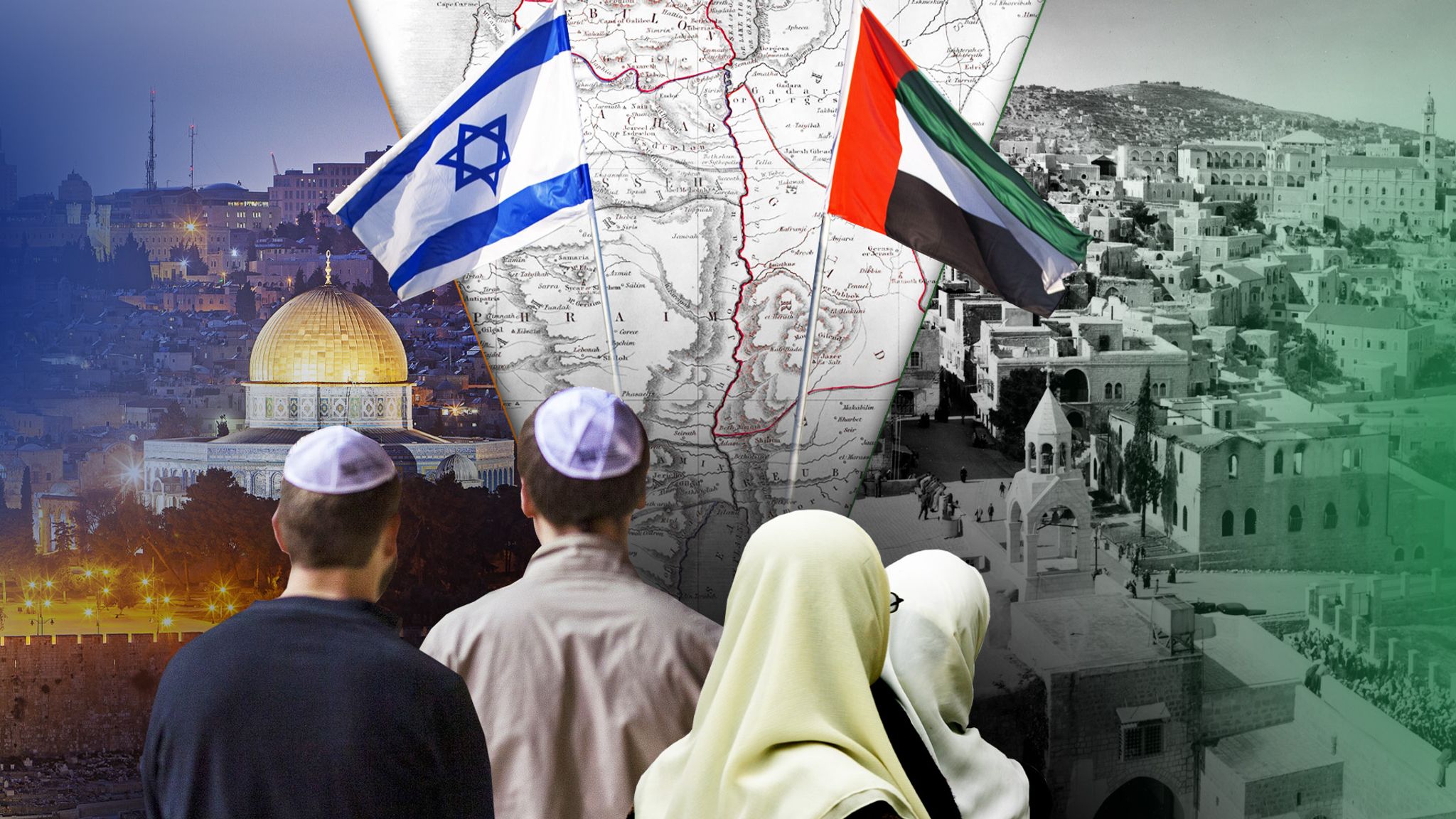The Complexities of the Israeli-Palestinian Conflict: Justifications and Opportunities

The Israeli-Palestinian conflict is one of the most enduring and complex disputes in modern history. It involves deeply rooted historical claims, political aspirations, and significant human suffering. In exploring potential solutions and justifications for actions taken by Israel, it is crucial to consider both perspectives to fully understand the intricacies involved. This article presents arguments for Israel's actions and the criticisms they face, aiming to offer a balanced view of this multifaceted issue.
Justifications for Israel's Actions
Security Concerns:
Historical Context: Israel's actions are often justified by the historical persecution of Jews, culminating in the Holocaust. The establishment of Israel in 1948 was seen as a necessary refuge for Jews worldwide.
Current Threats: Israel faces constant security threats from various groups, including Hamas in Gaza and Hezbollah in Lebanon, as well as regional adversaries like Iran. Military operations and security measures are deemed essential to protect Israeli citizens from attacks.
Right to Self-Defense:
Military Actions: Israel argues that its military operations in Gaza and the West Bank are necessary to dismantle terrorist infrastructure and prevent rocket attacks on its cities. Iran attack that comprise more than 200 Missiles and drone attack.
Preemptive Measures: Given the advancements in missile technology by hostile groups and states, Israel's preemptive strikes and security measures are portrayed as vital for national survival.
Economic and Social Integration:
Investments in Palestinian Territories: Some propose that Israel should invest in real estate, infrastructure, and essential services in Palestinian territories. This approach aims to improve living standards, create jobs, and foster economic interdependence, which could, in turn, reduce hostilities.
Mutual Benefits: Economic cooperation could benefit both Israelis and Palestinians, leading to improved stability and a reduction in support for extremist groups.
Territorial Expansion:
Strategic Depth: Advocates argue that expanding Israeli territory into Palestinian areas would provide strategic depth, enhancing national security. This is particularly relevant in light of recent threats from Iran and its proxies.
Historical Claims: Some Israelis believe in the historical and biblical right to the land, viewing expansion as a return to their ancestral homeland.
Criticisms and Controversies
Human Rights Violations:
Civilian Impact: Military actions in Gaza and the West Bank have resulted in significant civilian casualties and destruction of infrastructure, drawing widespread condemnation from international human rights organizations.
Forced Displacement: Proposals to displace Palestinian populations to neighboring Arab countries are seen as violations of international law and human rights, exacerbating the humanitarian crisis.
International Law and Legitimacy:
Occupation and Annexation: The international community largely views the West Bank, Gaza Strip, and East Jerusalem as occupied territories. Unilateral annexation or expansion is considered illegal under international law, including the Fourth Geneva Convention.
UN Resolutions: Numerous United Nations resolutions call for a two-state solution based on pre-1967 borders, with East Jerusalem as the capital of a future Palestinian state. Israel's actions are often seen as undermining these resolutions.
Long-term Security Risks:
Cycle of Violence: Critics argue that military actions and territorial expansion do not lead to lasting security but rather perpetuate a cycle of violence and retaliation. This can strengthen extremist groups and destabilize the region further.
International Isolation: Unilateral actions can lead to Israel's international isolation, damaging its relationships with key allies and leading to economic and political repercussions.
Ethical and Moral Concerns:
Moral Responsibility: The forced relocation of populations and the significant impact on Palestinian civilians raise ethical and moral questions. Many argue that such actions are indefensible and counterproductive to achieving peace.
Humanitarian Impact: The ongoing blockade of Gaza and restrictions in the West Bank have led to severe humanitarian conditions, including poverty, limited access to healthcare, and restricted freedom of movement.
Do israel need more space to live freely?
The question of space and quality of life for Jewish communities, particularly in the context of Israel and the Israeli-Palestinian conflict, is complex and multifaceted. Here are some key points to consider:
Historical Context
Historical Persecution: Jewish communities have faced centuries of persecution, culminating in the Holocaust during World War II. The establishment of the State of Israel in 1948 was seen as a safe haven for Jews worldwide.
Aliyah: Israel's Law of Return grants every Jew the right to immigrate to Israel. This has led to significant population growth and a diverse Jewish community from around the world.
Space and Quality of Life
Population Density: Israel is a small country with a high population density, particularly in urban areas like Tel Aviv and Jerusalem. This can lead to challenges in terms of housing, infrastructure, and public services.
Housing and Land: The demand for housing in Israel is high, and affordable housing is a critical issue. Expansion into new areas and development projects are essential to accommodate the growing population.
Security Concerns
Security Needs: The constant security threats from various regional conflicts and terrorist activities create an environment where space is not just a physical requirement but also a strategic necessity.
Military and Defense: A significant portion of Israel's land and resources are dedicated to defense and security, which impacts the availability of space for civilian purposes.
Social and Economic Development
Economic Growth: Israel has a strong and innovative economy, particularly in technology and healthcare. Ensuring that economic growth translates into improved living standards for all citizens is a priority.
Infrastructure and Services: Investment in infrastructure, including transportation, healthcare, and education, is crucial to enhance the quality of life for all residents.
Ethical and Humanitarian Considerations
Human Rights: Every individual, regardless of their background, deserves to live with dignity, security, and access to basic needs such as housing, education, and healthcare.
Coexistence and Peace: The long-term solution to space and living standards for Jews in Israel is intrinsically linked to peace and coexistence with Palestinian neighbors. Sustainable development and improved quality of life for both communities can only be achieved through a just and lasting resolution to the conflict.
International Perspective
Global Support: The international community has a role to play in supporting efforts to improve living conditions in Israel and the region. This includes economic aid, diplomatic efforts, and support for peace initiatives.
Diaspora Engagement: The Jewish diaspora around the world also contributes to Israel’s development through investments, philanthropy, and advocacy.
The need for space and a better quality of life for Jews in Israel must be addressed through a multifaceted approach that considers historical context, security needs, economic development, and ethical considerations. Ultimately, achieving a peaceful resolution to the Israeli-Palestinian conflict is essential for creating an environment where all individuals can live and breathe freely, with the dignity and quality of life that every human being deserves.
Is Palestine could act as ground for testing fully Automated War means?
The notion of using the Israeli-Palestinian conflict as a test subject for new-age or fully automated warfare raises significant ethical, legal, and practical concerns. Here are several key points to consider:
Ethical Concerns
Human Rights: Using a real-world conflict as a testing ground for new military technologies can lead to violations of human rights. The potential for indiscriminate harm and the lack of accountability are significant ethical issues.
Civilian Impact: Automated warfare technologies, such as drones and autonomous weapons systems, can make it difficult to distinguish between combatants and non-combatants, increasing the risk of civilian casualties.
Legal and International Law
War Crimes: Employing experimental or fully automated weapon systems in conflict zones without thorough testing and adherence to international law can result in actions that may be classified as war crimes.
International Regulations: The use of autonomous weapons is currently a matter of intense international debate. Many countries and international bodies, including the United Nations, are working towards establishing regulations and potential bans on lethal autonomous weapons systems (LAWS).
Practical and Strategic Concerns
Technological Reliability: Fully automated systems might not be reliable enough for complex and dynamic combat scenarios. Malfunctions or misinterpretations by these systems can lead to unintended and potentially catastrophic consequences.
Escalation of Conflict: Introducing advanced automated warfare technologies can lead to an arms race, escalating the conflict further rather than resolving it. Opposing sides may respond by developing or acquiring similar technologies, increasing overall instability.
Societal and Political Impact
Public Perception: The use of experimental warfare technologies in a highly visible conflict can lead to significant public backlash, both domestically and internationally. This can affect the political landscape and lead to increased opposition to such measures.
Long-term Consequences: The introduction of fully automated warfare technologies can have long-term implications for global military strategies and the nature of warfare. It can set precedents that might be difficult to control or reverse.
The idea of using the Israeli-Palestinian conflict as a testbed for new-age or fully automated warfare is fraught with significant risks and ethical dilemmas. Any approach to conflict resolution should prioritize human rights, adherence to international law, and the pursuit of sustainable peace through diplomatic and political means. The focus should be on reducing violence and finding lasting solutions rather than experimenting with potentially dangerous and untested military technologies.
Can AI and Strategic Media Management Shield Israel from Annexation Fallout?
Sure peace and two states first but how long from who are in front, several strategic considerations regarding managing the fallout from annexation and leveraging technology, including AI, in media management. Here are key insights and suggestions:
Annexation and International Relations
Separation of State and Economic Entities: To mitigate international backlash and economic consequences, Israel could emphasize the autonomy of its economic entities from political decisions. This separation could help maintain business relationships and international partnerships despite political controversies.
Media Strategy: Crafting a sophisticated media strategy is crucial. This involves framing the narrative, emphasizing Israel's perspectives on security, historical claims, and the potential benefits of annexation (if pursued). Highlighting efforts to ensure the rights and welfare of affected populations, such as Palestinians, can also shape international perception.
Utilizing AI in Media Management: AI technologies can indeed play a significant role in managing media narratives over time. Here’s how:
Monitoring and Analysis: AI can monitor global media coverage, social media trends, and public sentiment in real-time. This allows for quick adjustments in messaging and strategy.
Targeted Messaging: AI algorithms can identify key influencers, target demographics, and geographic regions for tailored messaging. This precision helps in shaping opinions and countering negative narratives effectively.
Content Creation: While full AI-generated media companies might be a future possibility, current applications include AI-assisted content creation, fact-checking, and sentiment analysis. This improves the efficiency and accuracy of media campaigns.
Crisis Management: During crises or periods of heightened tension, AI can assist in crisis communications by analyzing responses, predicting outcomes, and recommending appropriate actions to manage public relations.
Practical Implementation
Long-term Planning: Establish a comprehensive media strategy that aligns with diplomatic efforts and long-term geopolitical goals. Anticipate potential scenarios and prepare responses accordingly.
Partnerships and Expertise: Collaborate with AI firms specializing in media analytics and crisis management. Engage with communication experts who understand the nuances of international relations and media dynamics.
Transparency and Accountability: While managing media narratives, maintain transparency and adhere to ethical standards. Misinformation or manipulation can backfire and worsen international perceptions.
Challenges and Considerations
Ethical Concerns: AI in media management raises ethical questions regarding privacy, manipulation, and the authenticity of information. Balancing technological capabilities with ethical guidelines is crucial.
Adaptability: Media landscapes evolve rapidly. Continuous adaptation and updates to AI algorithms and strategies are necessary to stay ahead of changing narratives and public sentiments.
Global Perception: While media management can influence perceptions, it's essential to address underlying issues diplomatically and through constructive engagement with international stakeholders.
Effectively managing the media fallout from annexation and leveraging AI technologies require foresight, strategic planning, and ethical considerations. By separating state and economic entities, crafting a proactive media strategy, and integrating AI capabilities, Israel can potentially navigate challenges while maintaining international relationships and managing public perception effectively over time.
The Israeli-Palestinian conflict remains one of the most challenging global issues, with deep-rooted historical, political, and ethical dimensions. While Israel's actions can be justified from a security and historical perspective, they also face significant criticism on legal, humanitarian, and ethical grounds. A sustainable resolution requires a balanced approach that addresses the legitimate security concerns of Israel while ensuring the human rights and aspirations of the Palestinian people are respected. This involves difficult compromises, international cooperation, and a renewed commitment to peace negotiations. Only through a comprehensive and fair approach can lasting peace be achieved in the region.









